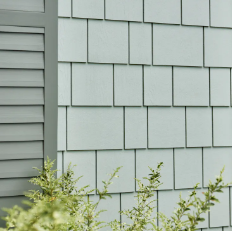The Ultimate Guide to James Hardie® Siding Benefits, Features, and Installation
Discover the top benefits, features, and installation process of James Hardie® siding in this comprehensive guide.
Why Choose James Hardie® Siding
James Hardie® siding is a popular choice for homeowners due to its exceptional durability and long-lasting performance.
It is engineered to withstand harsh weather conditions, including high winds, heavy rain, and extreme temperatures.
With James Hardie® siding, you can enjoy peace of mind knowing that your home is protected against the elements.
Additionally, James Hardie® siding is resistant to rot, pests, and fire, making it a safe and reliable option for any home.
Furthermore, James Hardie® siding offers a wide range of styles and colors, allowing you to customize the look of your home and enhance its curb appeal.
Whether you prefer a traditional or modern aesthetic, James Hardie® siding has options to suit every taste and architectural style.
Overall, choosing James Hardie® siding means investing in a high-quality product that will enhance the beauty, value, and durability of your home.
Key Features of James Hardie® Siding
James Hardie® siding is made from fiber cement, a composite material that combines cement, sand, and cellulose fibers.
This unique composition gives James Hardie® siding its exceptional strength and durability.
Unlike traditional wood siding, James Hardie® siding is resistant to warping, cracking, and splitting, ensuring it maintains its integrity over time.
Additionally, James Hardie® siding is engineered to resist moisture, preventing issues such as rot and mold growth.
It is also resistant to pests, including termites, which can cause significant damage to homes with wood siding.
Another key feature of James Hardie® siding is its fire resistance.
In fact, it is recognized by building codes as a non-combustible material, providing an added layer of safety for your home.
Finally, James Hardie® siding is designed to withstand the harshest weather conditions, including high winds and extreme temperatures.
Its superior durability and weather resistance make it an ideal choice for homeowners in any climate.
Benefits of James Hardie® Siding
There are numerous benefits to choosing James Hardie® siding for your home.
Firstly, it offers exceptional durability, ensuring that your siding will last for many years with minimal maintenance.
This durability translates to long-term cost savings, as you won't have to worry about frequent repairs or replacements.
Secondly, James Hardie® siding is low maintenance, requiring only occasional cleaning to keep it looking its best.
Unlike wood siding, it does not need to be painted or stained regularly, saving you time and money on maintenance.
Thirdly, James Hardie® siding is resistant to rot, pests, and fire, providing a high level of protection for your home.
This can give you peace of mind, knowing that your home is safeguarded against common threats.
Lastly, James Hardie® siding offers a wide range of styles and colors, allowing you to achieve the look you desire for your home.
Whether you prefer a classic, timeless design or a more contemporary aesthetic, there's a James Hardie® siding option to suit your taste.
Overall, the benefits of James Hardie® siding make it an excellent choice for homeowners looking for a durable, low maintenance, and visually appealing siding option.
Installation Process of James Hardie® Siding
The installation of James Hardie® siding involves several steps to ensure a proper and professional installation.
Firstly, the existing siding or cladding is removed from the exterior walls of the home.
This may involve removing any existing trim, flashing, or other accessories.
Next, the wall surface is prepared by inspecting for any damage or rot and making any necessary repairs.
A weather-resistant barrier, such as a house wrap, is then installed to provide an additional layer of protection against moisture.
After the barrier is in place, the James Hardie® siding is measured, cut, and installed according to the manufacturer's instructions.
Special attention is given to the proper alignment and spacing of the siding boards to ensure a seamless and professional appearance.
Once the siding is installed, any necessary trim, flashing, and caulking are applied to complete the installation.
Finally, a thorough inspection is conducted to ensure that the siding is properly installed and meets the highest standards of quality and craftsmanship.
Overall, the installation process of James Hardie® siding is a meticulous and precise undertaking that requires the expertise of professional installers.
Maintaining and Caring for James Hardie® Siding
Maintaining and caring for James Hardie® siding is relatively simple and straightforward.
Regular cleaning is recommended to remove dirt, dust, and other debris that may accumulate on the surface of the siding.
This can be done using a soft brush or cloth and a mild detergent or a mixture of water and vinegar.
Avoid using abrasive cleaners or tools that may scratch or damage the surface of the siding.
Additionally, it is important to inspect the siding regularly for any signs of damage, such as cracks, chips, or loose boards.
If any issues are identified, they should be addressed promptly to prevent further damage and ensure the longevity of the siding.
In areas with high humidity or frequent rain, it may be beneficial to periodically inspect the caulk and sealant around windows, doors, and other openings.
If any gaps or cracks are found, they should be sealed to prevent water infiltration and potential damage to the siding.
Overall, by following these simple maintenance and care guidelines, you can keep your James Hardie® siding looking beautiful and performing at its best for many years to come.

